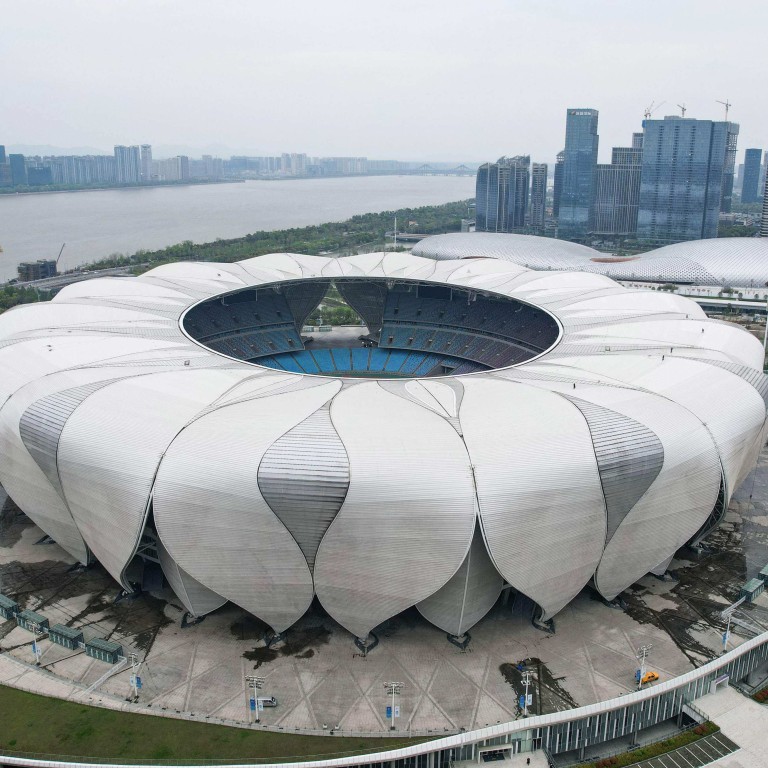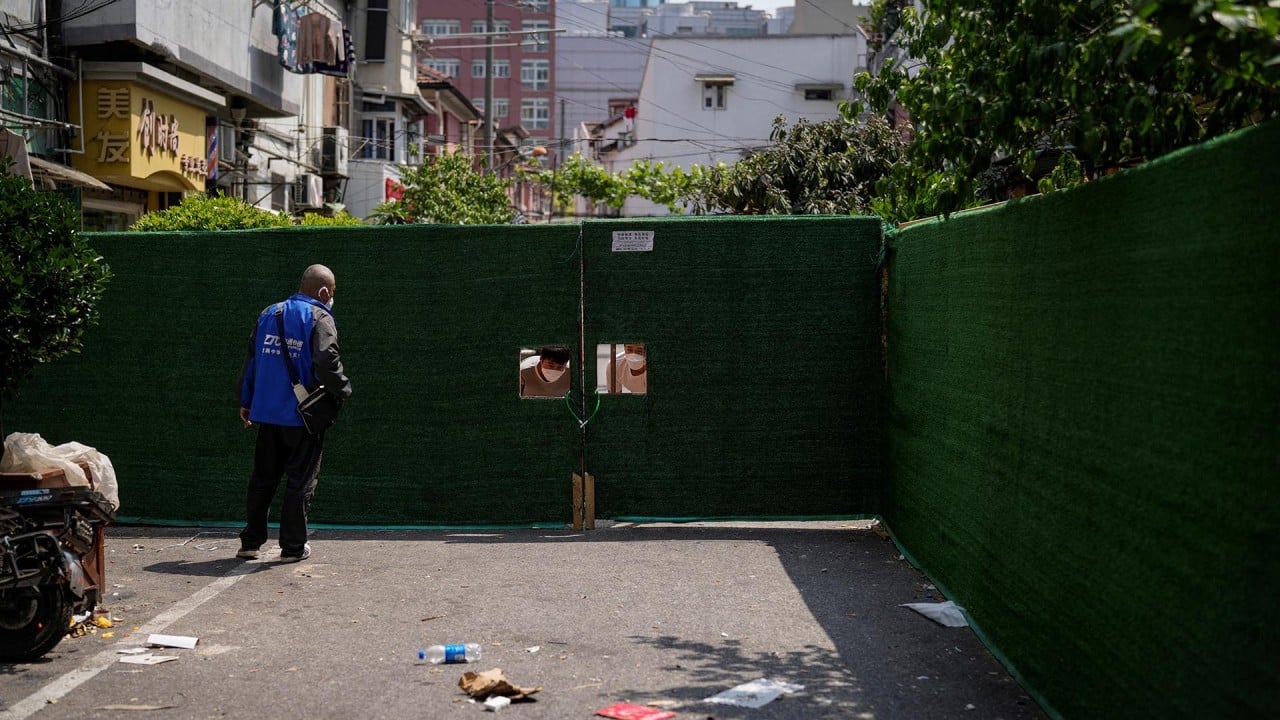
Covid-19 in China: top-tier sporting events on hold in countdown to Communist Party’s national congress
- Hangzhou was expected to host Asian Games in September but organisers say it will now take place at another time
- Decision taken ‘after carefully considering the pandemic situation and the size of the games’
“The Olympic Council of Asia has announced that the 19th Asian Games, originally scheduled to be held in Hangzhou, China from September 10 to 25, 2022, will be postponed,” the council said.
New dates for the sporting contest “will be announced at a later date”.
In early April, Hangzhou organisers said all 56 competition venues for the games had been completed and test events were continuing as the city prepared to host more than 11,000 athletes from 44 nations and territories.
The OCA said on Friday that the decision “was taken by all the stakeholders after carefully considering the pandemic situation and the size of the games”.
It also said the Asian Youth Games to be held in Shantou in December would be cancelled, having already been delayed once.
Covid-19 in China: University Games ‘set to be postponed for second time’
Hangzhou-based political analyst Wen Kejian said that with just months to go until the party congress in the autumn, the main reason for the delay to the Asian Games was Covid-19 prevention and control.
“The outbreak and situation in Shanghai is a lesson learned and put officials [in Hangzhou] under a lot of pressure not to let the situation get out of hand,” Wen said.
It comes as Beijing prepares to host the five-yearly gathering of top party leaders, at which President Xi Jinping is expected to start an unprecedented third term as party leader.
Also on Friday, the International University Sports Federation (FISU) announced that the World University Games, which were due to start in Chengdu in late June, would be postponed for a second time until next year.
Acting FISU president Leonz Eder said the decision to reschedule the event was “the right decision for university athletes”.
“Their welfare is always our number one priority. Continued uncertainty over conditions has made rescheduling the sensible choice,” Eder said.
“The FISU is confident that this decision will enable the greatest possible number of university athletes to attend next year.”
Weibo weighs in on Asian Games – ‘good meal not afraid of being late’
Wen said that to prevent transmission of the coronavirus, Hangzhou had been expected to adopt the “closed-loop” model of containment used at the Winter Olympics in Beijing in February.
Organisers would create a virus-free bubble separating participants from the community but the Asian Games involved more events and venues in other cities, making the system tougher to apply.
“Hangzhou authorities have already spent hundreds of billions of yuan on construction, and they also hope to hold it,” he said.
But if there was no change to China’s zero-Covid policy, it might be difficult to host even next year, Wen said.
“If it is postponed again, it will clash with the next one,” he said.
Mark Dreyer, a Beijing-based sports commentator and author of the book Sporting Superpower, also said that the timing of the Asian Games so close to the congress was a factor.
“Obviously if there’s negative news about Covid-related event just ahead of what’s supposed to be a positive event, the timing is bad,” he said.
Dreyer said the Asian Games paled in significance to the Winter Olympics and the risk of hosting it was not worth it under existing conditions.
“When Beijing hosted the Winter Olympics, it was almost entirely free of Covid,” he said. “Hangzhou has had on-and-off outbreaks for a couple months at this point.”
He said coordination for the Asian Games was more complex, with the event involving more athletes and more people coming from outside the country.

.jpg?itok=H5_PTCSf&v=1700020945)


